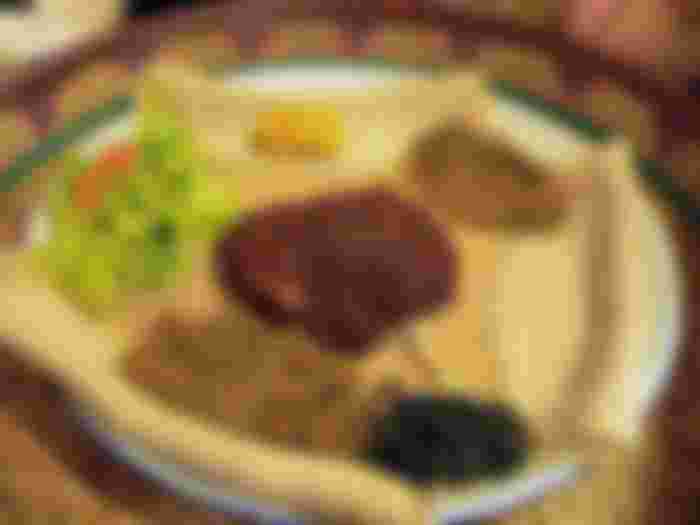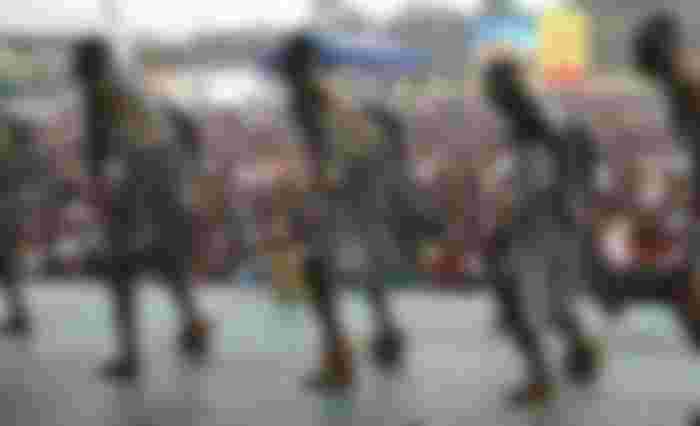When you hear the name 'Africa', you can see the desert, the hot sun and the forested path. It seems inappropriate to want to do something with the touch of aristocracy in a life of misery, helplessness and struggle. So this Africa too, actually all over the African continent but this aristocratic Christmas is celebrated on 25th December every year. Does Christmas mean the same thing to many tempting cakes, Santa Claus presents and illuminated palm trees in African countries? Or is there a different kind of arrangement? Let's find out.
Christianity in Africa
Before learning about religious festivals, let us know the origins of Christianity in Africa. Christianity originated in Africa in the first century. It started in Egypt and spread to the African continent by the fourth century. According to experts, Christianity was spread in North Africa long before Northern Europe. However, the number of Christians in the propagation of Islam is declining. Many also became followers of traditional African religions. It is currently one of the two most widely practiced religions in Africa. According to a 2016 study, there are 631 million Christians in Africa, more than any other continent.
Different in organizing across the continent
There are 54 independent countries on the African continent and one intercontinental country. There is variety in celebrating Christmas in these 55 countries. Similarity is found in going to church and singing carols, exchanging gifts, and so on. Going to church in Africa can be said to be the main part of Christmas, where discussions about the birth of Jesus Christ, singing hymns and in many cases dancing are performed. The formalities of a few countries will be discussed here.
Celebrating Christmas in Ethiopia
In Ethiopia, the Julian calendar is still used instead of the English calendar. According to the Julian calendar, Christmas is not December 25, but January 8. In other words, in Ethiopia, Christmas is celebrated on January 8. They call the celebration of Christmas in the Ethiopian church 'Gana' or 'Gena'.

Most Christians in Ethiopia fast 43 days before Christmas, honoring the day of Christ's appearance. This is called the 'fast of the prophets'. They observe this custom from November 25 to the day before Christmas. During this time they eat once a day and avoid all kinds of meat, eggs, dairy foods and alcohol.
On Christmas day they all wear the traditional white dress ‘Netella’ for the ganner (Christmas celebration in the church). The netella is a thin piece of white cotton cloth with brightly colored fringes and is worn as a shawl. They went to church at 6 o'clock on Christmas Eve and the ceremony ended at 3 o'clock at night.
Their churches have three circles. Singing hymns with a candle in hand, everyone circled these three circles three times, one by one. The middle circle is the most important, because they believe, it is possible to communicate with heaven in this circle.
Traditional Christmas dishes include ‘watts’, which are steamed with meat, eggs, vegetables and quite a bit of salt. Watt is eaten with a thin loaf of bread called ‘injera’.

But this is not the end. Twelve days after the celebration of Gana, i.e. 19th January, for three days, ‘Timkat’ is observed, where young children walk around the church wearing crowns on their heads and gowns on their bodies. During this time musical instruments are played.

‘Merry Christmas’ is called in Ethiopian language ‘Melikum Gena’!
Celebrating Christmas in Sicily
Sicily is the smallest country in Africa. With 115 islands in the Indian Ocean, Sicily is a paradise for beauty lovers. Christmas is celebrated in Sicily quite pompously. Christmas here means food, family and hanging out on the beach.
Christmas in Sicily begins in November. Churches begin in the churches on the four Sundays before Christmas Day. At midnight on December 24, everyone gathered to celebrate Christmas Eve and sing hymns. Again on the morning of the 25th they gathered and celebrated the birth of the little Jesus. The children donate one cent to the church on the 25th. Many go to the cemetery early in the morning to pay their respects to their ancestors.

The streets and cities of Sicily are full of glamor and splendor. The beach became a gathering place for family and friends. The festivities begin with the shaking of a bottle of champagne, and there is the practice of eating and drinking, dancing, and exchanging gifts.
People's Republic of Congo
In Congo, Christmas is just a religious holiday. The exchange of gifts in this festival is not seen among them. The church is an important part of the festival. Music evenings are celebrated there on a large scale. Besides, there is drama staging. Those who act in the play try their best to express the best performance. The drama started in the evening and lasted till midnight.

Gambia
In addition to going to church, praying, decorating the Christmas tree, etc., the people of Gambia take part in the procession with large lanterns in their hands. These funnels are shaped like boats, or like houses. This parade practice is Gambia's own feature.
Ghana
In Ghana, Christmas is celebrated from December 20 to the first week of January. There are about 7 language groups in Ghana, each with its own traditions and way of life.
Across Ghana, Christmas Eve begins with a church show, where drumming and dancing take place throughout the night. The children present the play. Everyone reads hymns in their own language, because, according to them, the mother tongue is the best way to communicate with God.

Traditional Ghanaian dishes include ‘aka soup’, ‘fufu’ (rice and sweet mashed potatoes) and meat. Gift exchanges are common throughout Ghana.
Malay
There is something eye-catching in Malay, along with everything else. On Christmas day, little ones dance around the street with home-made musical instruments and go home. They receive a small amount of money as gifts from their homes, much like the children of our country collect salami during Eid.
Others
Christmas is not celebrated in Muslim-majority countries. In many cases it is not even a holiday, as in Algeria or Senegal. Again, Christmas in Morocco is exactly like in the United Kingdom or the United States. And when it comes to food, everyone tries to have a good meal in this festive atmosphere. There should be tempting cakes, but not so in Africa.
Thanks for reading this article for so long.
If you like it Upvote Can give.





